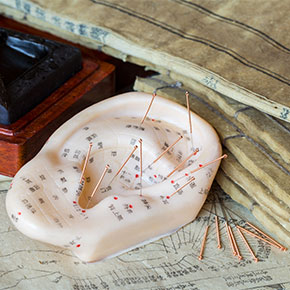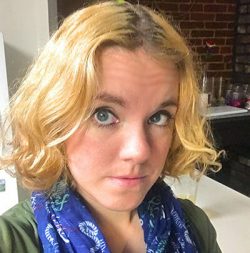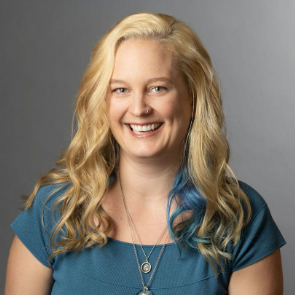Acupuncture Degree and Career Guide
You May Also Enjoy
What Degree Do I Need to Become an Acupuncturist?
You’ll need at least a master’s degree to work as an acupuncturist, but many programs have options to fast-track your education.

Acupuncturists are advanced healthcare providers. They’re experts in acupuncture and Traditional Chinese Medicine (TCM) and are able to treat a variety of health conditions. You’ll need at least a master’s degree to practice.
That means you’ll normally need a bachelor’s degree before you get started, but some schools offer programs that allow you to earn your bachelor’s and master’s at the same time. There are also doctoral degrees available if you want to continue your studies.
In This Article
Whichever degree you pursue, it’s important to choose an acupuncture school that will help you meet your goals and earn licensure.
“Acupuncturists should have training in the basic sciences as well as many hours of clinical training” says Jennifer Bennett, ND, LAc, a practicing acupuncturist and naturopath and professor at Seattle-based Bastyr University, which has both master’s and doctoral acupuncture programs. “Schools should have their own in-person clinic where you can see and treat patients during your education. They should also help prepare you for the (National Certification Commission for Acupuncture and Oriental Medicine) exams and certification, which are needed for licensure in almost every state.”
What You’ll Study
In your acupuncture degree classes, you’ll study the philosophy behind acupuncture practice and gain the skills you need to perform acupuncture safely and effectively.
You’ll study needle technique and learn the acupressure points and meridians on the body that help regulate energy flow. Depending on your program, your coursework might also cover:
For more insight into the journey, we sat down and interviewed an acupuncturist, who revels in the relationships she gets to build with her clients.
Acupuncture School:
What Can I Expect?
Acupuncture Philosophies
Acupuncture falls under the holistic healthcare approach known as Traditional Chinese Medicine (TCM). Often, acupuncture programs are offered at TCM schools or are part of TCM degree tracks.
There are three major philosophies within TCM:
- five elements philosophy
- qi philosophy
- and yin-yang philosophy.
While these aren’t the only TCM philosophies or theories, they are the most popular. Your program might focus on all three or it may focus on only one.
Five Elements Philosophy
Five elements philosophy holds that there are five major elements in the world:
All of these elements are essential but have different properties and uses on earth. The philosophy states that this concept can also be applied to the body. According to TCM, there are also five elements of the body and all need to be working correctly for the body to function as it should:
In the five elements philosophy, balancing these organs is vital to health. In TCM, each of these body elements acts on each other and are interwoven, just like the five natural elements.
For example, you can’t have fire without air or wood without water. Similarly, TCM believes the function of your kidneys impacts the function of your liver, a healthy heart requires healthy lungs, and so on.
If your program focuses on the five elements, you’ll study the intricate ways these body elements interact. For instance, you’ll study how treating the spleen can impact other organs, or how focusing on the liver can help the entire body. You’ll study how acupuncture can be used to target each element and the effects that targeting the elements can have.
Yin-Yang Philosophy
The yin-yang philosophy is about balance and harmony. It holds that there are two sides to everything: a “yin” and a “yang,” and that these two sides are dependent on each other, even when they’re in opposition. You might have seen this philosophy used in pop culture to talk about concepts like the balance of light and dark, or day and night.
In TCM, the yin-yang philosophy looks at how balance is needed in the body. For example, your kidneys are only working properly if they are secreting water and absorbing nutrients. The secretion and absorption are opposites that must work together for your body to function properly.
When you study yin-yang philosophy as part of your acupuncture education, you’ll focus on the ways changes in one system can cause a reaction in another. You’ll learn how acupuncture doesn’t just affect the area it’s applied to, but other systems as well. By knowing the yin-yang of body function, you can help your patients achieve balance in their bodies and improve their health.
Essential Qi Philosophy
“Qi” refers to the energy and energy pathways in the human body. TCM teachings follow the theory that when qi energy is disrupted, your body cannot function correctly. This can cause pain, illness, and other conditions. You can help correct those conditions by balancing the qi in the body.
Many acupuncture programs focus heavily on qi philosophy. TCM believes that by stimulating acupuncture points, you can readjust the body’s qi. Acupuncture techniques can also be used to create positive qi. TCM holds that positive qi can combat negative qi caused by illness or stress. When the negative energy is quelled and the qi is balanced, healing can begin.
Degree Pathways

There are a few degree pathways available to acupuncture students. You can earn a master’s degree, bachelor’s and master’s combined degree, or doctoral degree. Depending on your school, your degree might include other tenets of TCM, a focus on Chinese herbs, or other treatments.
The program that’s right for you depends not only on your career goals but also on the state in which you intend to practice. States have different licensing requirements, and you’ll need to make sure your education meets those.
Master of Acupuncture
Prerequisites: Bachelor’s degree from an accredited school. A good GPA is a plus, since programs are competitive.
Time to complete: Three years
Typical curriculum: Acupuncture theory, bodywork, traditional herbs, TCM philosophy, ethics, practice management
Online options: Not generally available; however a hybrid program might be an option. With a hybrid program you can take coursework online, but you’ll need to come to campus for practical skills courses. You’ll also need to complete clinical hours.
Target student: Anyone interested in natural healing modalities, other holistic professionals who are looking to add to their practice, and adult students
Clinical hours required: Varies, but generally around 850
You should know: This track will prepare you to open your own acupuncture clinic. Programs are generally full-time, but you might be able to find online options.
Master of Acupuncture without prior bachelor’s degree
This is the combined bachelor’s/master’s option for people who don’t yet have a bachelor’s degree.
Prerequisites: A high school diploma or GED. You might take some prerequisite courses before starting your acupuncture coursework.
Time to complete: Four years
Typical curriculum: Acupuncture theory, bodywork, traditional herbs, TCM philosophy, ethics, practice management
Online options: As with most acupuncture programs, there aren’t many online options. A hybrid program might be offered, with in-person clinical hours required.
Target student: Adults going back to school, healthcare professionals who have an associate degree or certification, and people with some college credits but not a degree
Clinical hours required: Varies, but generally around 850
You should know: These programs are a great way to fast-track your degree. This makes it a smart choice for adults who may be working in a related field but have yet to earn a degree.
Master of Acupuncture and Oriental Medicine
Prerequisites: Bachelor’s degree from an accredited school. A good GPA is a plus, since programs are competitive.
Time to complete: Four years
Typical curriculum: You’ll learn the same skills and theory as in a Master of Acupuncture program, but you’ll dive deeper into theory, Traditional Chinese Medicine, and more. You’ll study acupuncture theory, bodywork, traditional herbs, TCM philosophy, ethics, practice management, tui na massage, zang fu theory, and integration of Eastern and Western treatments.
Online options: Not generally available but a hybrid program might be an option. With a hybrid program you can take coursework online, but you’ll need to come to campus for practical skills courses. You’ll also need to complete clinical hours.
Target student: People who are looking to open an acupuncture clinic and want a broader education, and people who have worked in other fields and are returning to school to change careers
Clinical hours required: Generally at least 1,000
You should know: This degree is preferred by some state licensure boards. You’ll also need this degree in many states if you want to include herbs in your practice.
Doctor of Acupuncture or Doctor of Acupuncture and Oriental Medicine
Prerequisites: Bachelor’s or master’s degree with a solid GPA. Many programs allow you to earn your doctorate alongside your master’s degree in acupuncture.
Time to complete: Four years
Typical curriculum: Doctorate curriculum will give you a more advanced understanding of concepts and knowledge you’d learn in a master’s program. The general topics will be the same, but you’ll dig deeper into the philosophies and research behind them.
Online options: Some hybrid programs available with some coursework online and practical skills courses on campus. You’ll also need to complete clinical hours.
Target student: Adults and nontraditional students
Clinical hours required: Varies, but generally at least 1,000 hours
You should know: Many programs are designed so that you can continue working while you attend. Classes might be intensive weekend sessions rather than spread throughout the week.
What’s My Title?
An acupuncturist is a medical provider, but what is their title? Are they practitioners? Doctors? Often, the answer is practitioner. However, there’s not one simple answer. After all, someone with a Doctor of Acupuncture degree is a doctor by most definitions. It’s easy to get confused.
The most common title for acupuncturists is licensed acupuncturist (LAc), but that’s not the only title acupuncturists can earn. Other common titles include:
The title you use will likely come down to where you practice (some titles are used only in Canada or certain states) and the specific degree you earn.
Licensing and Certification
Forty-seven states require acupuncturists to be licensed, and most require certification as well. If your state is one of them, you’ll need to pass exams from the National Certification Commission for Acupuncture and Oriental Medicine (NCCAOM). These exams are required in every state that licenses acupuncturists. California is the one exception; it has its own exams.
In order to take the NCCAOM exam and earn certification and licensure, you’ll need to be a graduate of an accredited program. You’ll need to submit your final transcripts to NCCAOM for approval and pass an approved Clean Needle Technique (CNT) course. Once you take the NCCAOM exam, you can apply for certification and licensure if your state requires it.
Keep in mind that certification is always a good idea. Even if you live in a state that doesn’t require it, certification is a great way to show patients and employers you have the knowledge and skills you need to practice acupuncture. It’s also important to have if you plan to take insurance at your clinic since certification or licensure is often a requirement for insurance reimbursement.
How Much Can I Earn?
Your earnings as an acupuncturist will depend on several factors. Everything from your experience to your education to your credentials can play a major role in how much you earn. Where you work is another huge factor.
While your earnings at a clinic you run will largely depend on the size of your client base and your business skills, your earnings at a large medical center will often be a preset salary.

Written and Reported by:
Stephanie Srakocic
Contributing Writer

With professional insight from:
Jennifer Bennett, ND, LAc
Naturopath and Professor, Bastyr University
